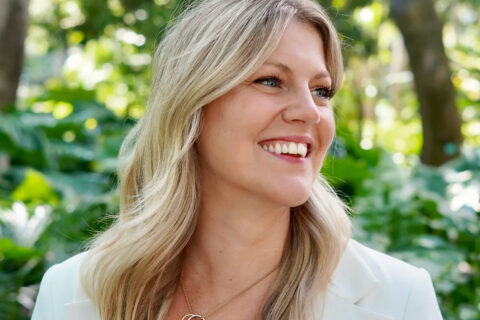Standardization often gets a bad rap in entrepreneurial circles, but it works.
It works whether you’re talking about manufacturing auto parts or teaching a class or managing a team. A single set of benchmarks in any of these processes sets goals, shows progress, and identifies the finish line in a clear, uniform way.
It works until it doesn’t. By definition, the neurodiverse approach things differently. Similarly, the core ideals of the entrepreneurial enterprise put significant value on a different approach, a distinct perspective, and a divergent mindset. Viewed through these lenses, the entrepreneurial and the neurodiverse share many of the same spaces.
A neurodiverse approach to learning

Let’s look at education. For non-neurodiverse children, today’s school environment can provide a solid foundation of skills, insights, and information to succeed in life. Schools standardize what kids learn, regardless of individual capabilities. Kids are grouped into grade levels, which define what each child should be able to achieve at each tier.
Neurodiverse learners (NDLs), however, have a different set of needs than the non-NDLs and even other NDLs. Covid-19 has added to this challenge, with most of the families I’ve talked with initially seeing noticeable regression in learning and other measures. The culprit here appears to be a reduction in the consistency of their daily lives.
How is this relevant to the neurodiverse entrepreneur?
The neurodiverse entrepreneur
It’s simple. Today’s young student struggling through attention deficit hyperactivity disorder (ADHD) or is on the spectrum for autism can well be tomorrow’s ground-breaking entrepreneur. Many of today’s entrepreneurs may struggle with this even today as they go through their daily, albeit innovative, routines.
The upside of being an NDL if you’re an entrepreneur? The different approach to synthesizing information and the ability to “think differently” is a core attribute of an entrepreneur. Indeed, some of the world’s most successful entrepreneurs attribute their success to their NDL challenges.
However, for today’s students and tomorrow’s entrepreneurs there are some basic obstacles to overcome. Programs and educational tools can be heavy on both bureaucracy and – if you don’t fit an economic mold – expensive. Trained educators and clinicians are simply at a premium; the number of students with NDL needs is growing and qualified, credentialed professionals to help these students are in short supply.
Fortunately, entrepreneurial technologies are coming to the rescue. As the CEO of one such enterprise, I can tell you that we are solving the barriers of cost, limited personnel, and the unique demands of neurodiverse learning through our Goally app.
The strategy we used for our project was straightforward, building a smartphone-similar device that gives the learner easy to follow prompts for daily routine and a web-enabled backend for parents, clinicians, and educators. Our commitment to access means we offer a free download of the app so that no one is turned away that would like to use this assistive technology.
According to BehavioralBlossom.org, consistency can provide substantial improvements in socio-emotional health in people with autism by reducing power struggles, improving cooperation, improved personal connections, and ownership of activities and responsibilities. Excellent advantages for both young learners and more time-seasoned entrepreneurs. Technology can be infinitely patient and consistent aid in this regard. It effectively remains a calm, consistent, clockwork-steady touchpoint in what may be an unpredictable world.
Our research has also shown the potential for technology to bring a measure of focus and discipline to the daily lives of the neurodiverse, which could help leverage their different styles of thinking and unique points of view into the entrepreneurial space. Providing a stabilizing technology could be the first step in building the bridge to tap into the thought processes of someone who, because they think differently, may have unique insights into their problems, your problems, and our problems.
Embracing diversity in entrepreneurship
The world is full of diversity, no more so than in the realm of entrepreneurs. Let’s give all the entrepreneurs of today and tomorrow the tools they need to turn their neurodiverse learning needs into a winning strategy for innovation, discipline, and creative thinking.
Sasha Shtern is CEO of Goally, a company dedicated to making software for special needs kids. Goally’s tools help parents implement at home the strategies professionals use in clinics and schools. A successful serial entrepreneur, angel investor, co-organizer of Ethereum Denver, and co-founder of Rocky Mountain Blockchain, Shtern advocates for other serial entrepreneurs to move into social enterprises. In 2015 he co-founded Impact Makers Table, a nonprofit dedicated to channeling data-driven philanthropy. He is passionate about education policy and healthy eating for kids. Education University of Colorado, Denver, and Harvard Business School.
© YFS Magazine. All Rights Reserved. Copying prohibited. All material is protected by U.S. and international copyright laws. Unauthorized reproduction or distribution of this material is prohibited. Sharing of this material under Attribution-NonCommercial-NoDerivatives 4.0 International terms, listed here, is permitted.














